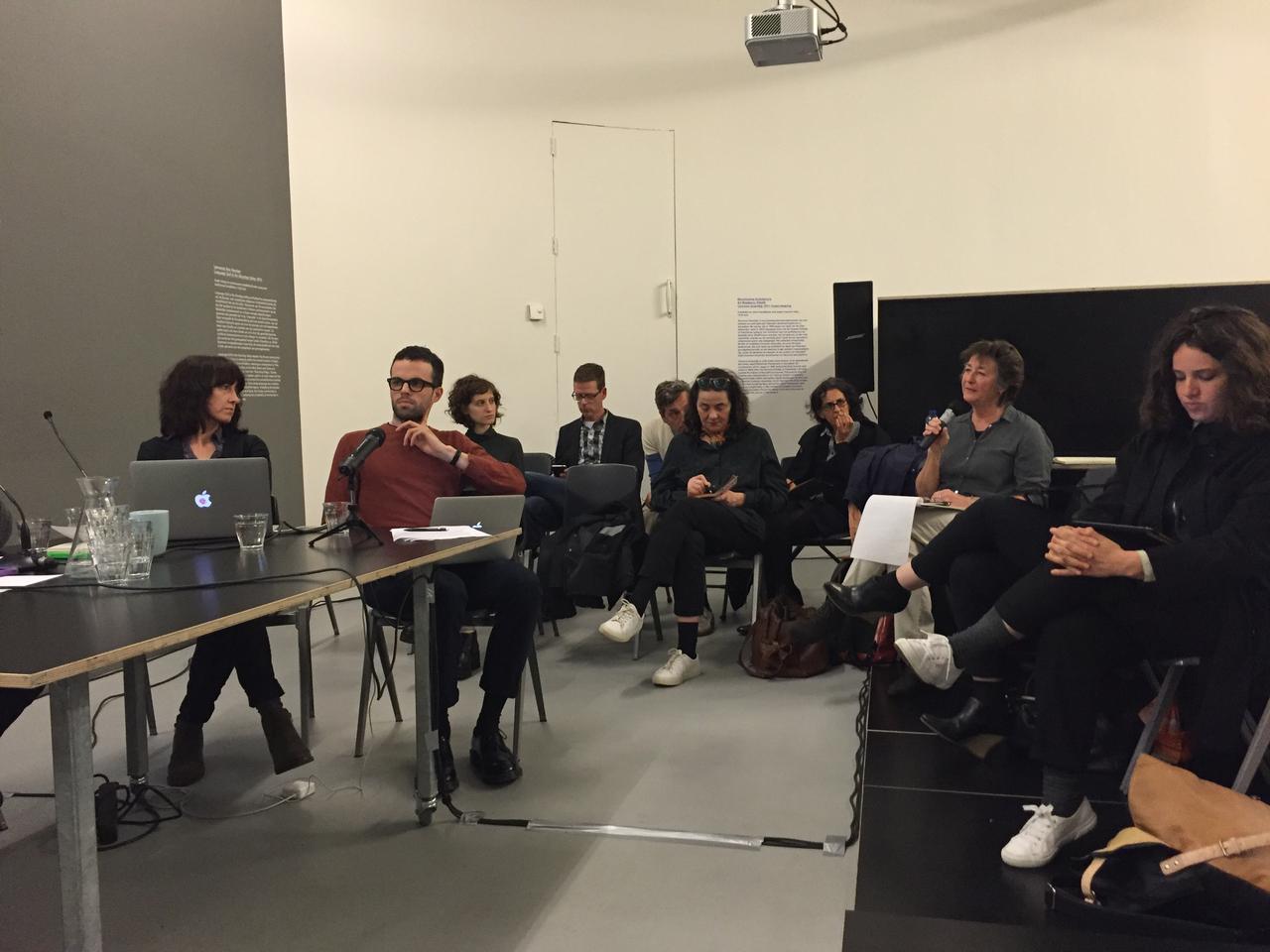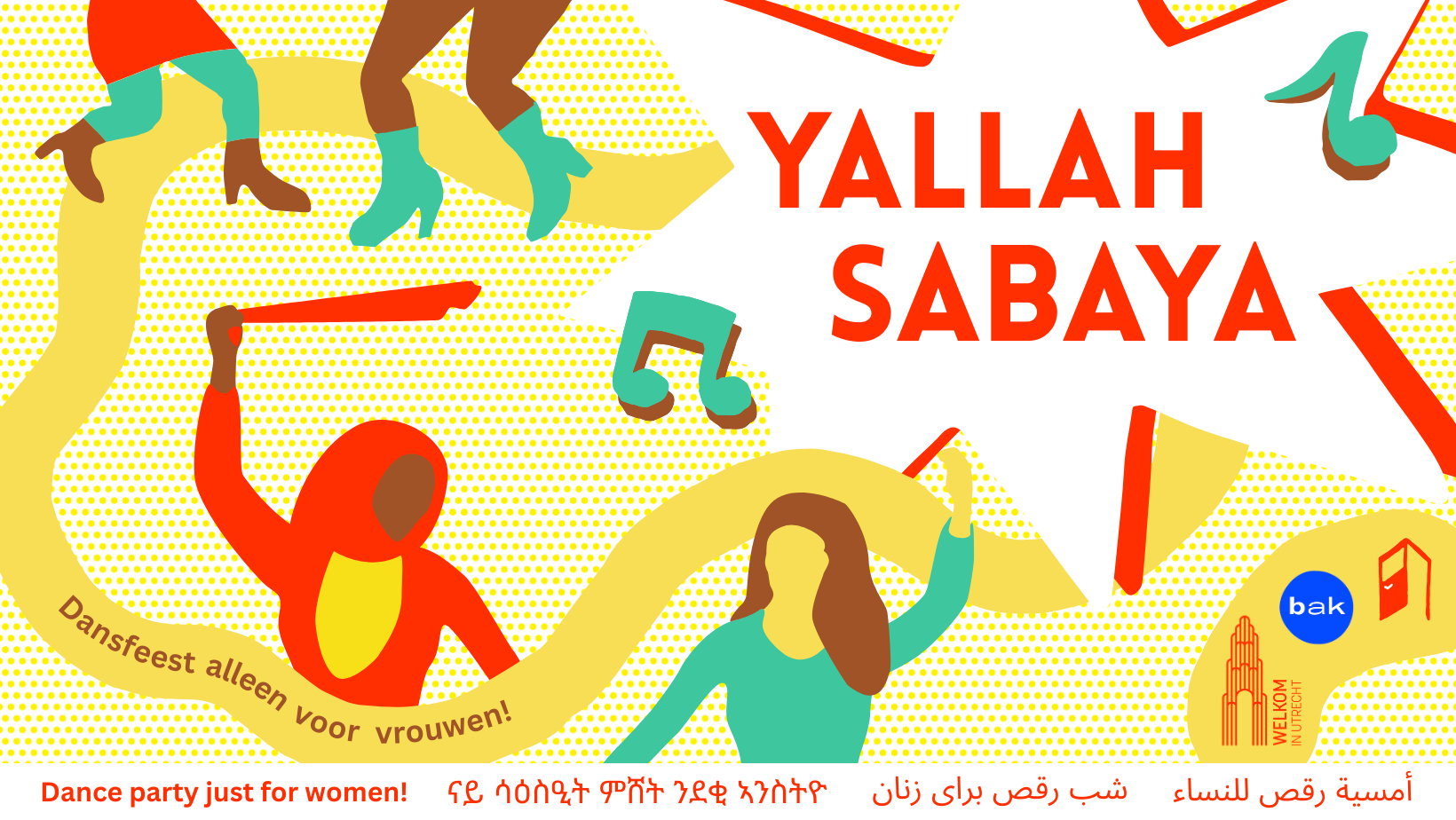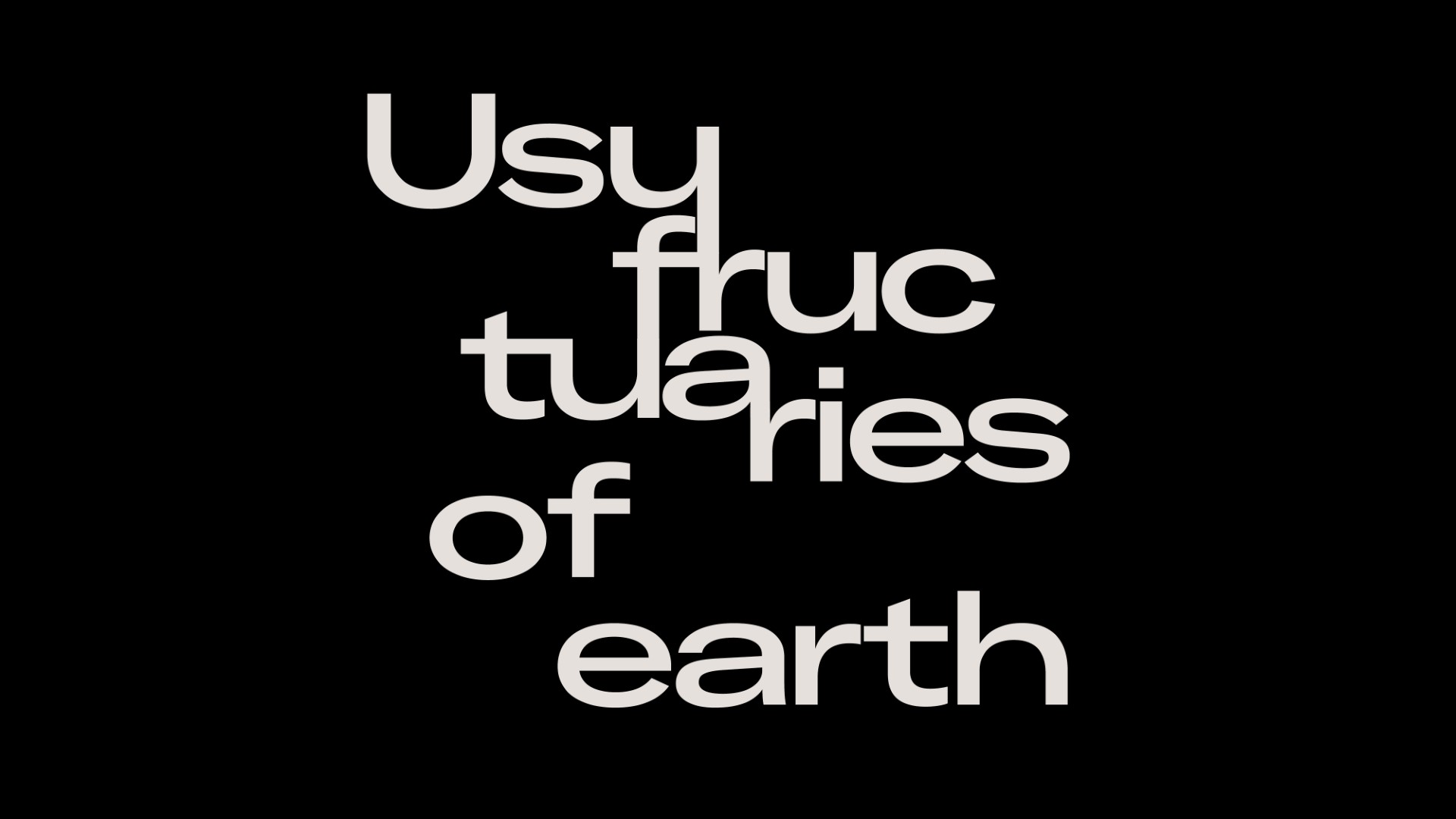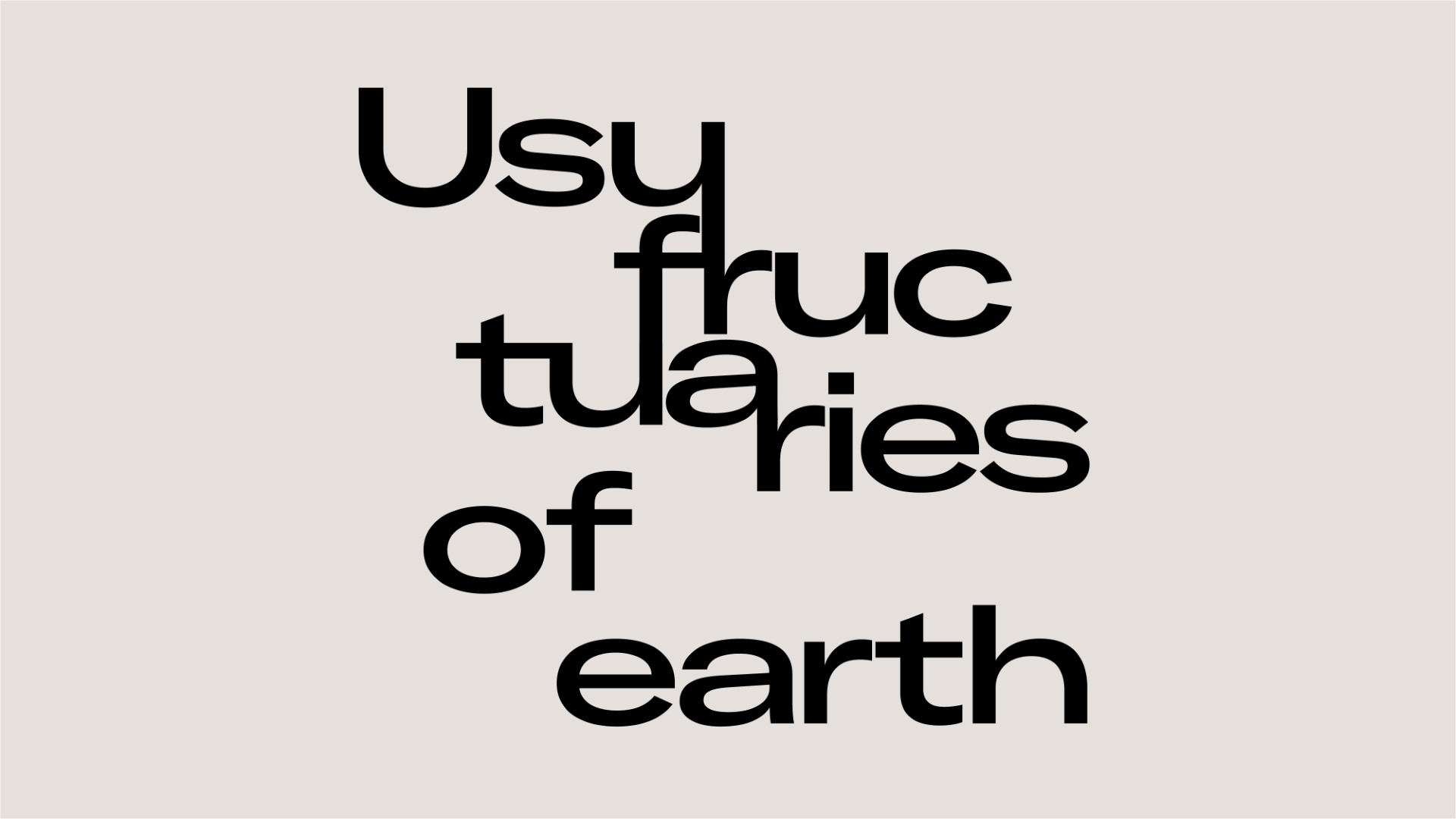Instituting for the Contemporary—part 3

In the third of three Public Editorial Meetings held towards the publication of the new critical reader Instituting for the Contemporary, Angela Dimitrakaki, Sidsel Meineche Hansen, pantxo ramas, Gerald Raunig, and Tom Vandeputte each present draft contributions in response to one of the reader’s eight guiding concerns: “Education,” “the Contemporary,” “Compositionalism,” “Instituting,” and “Commitment” respectively. Reflecting on the terms, these publically presented drafts will bring to question the methods of, and resistance to, the institution—raising a number of considerations for a practice of instituting.
In revising “Instituting for the Contemporary” as rather “Instituting for the Future through the Contemporary,” Angela Dimitrakaki speaks of a Commitment on behalf of the institution to what has not yet been. She makes three suggestions towards this proposal: Instituting to highlight causality as necessity; Instituting against the Competition Principle (or why the art field is not a commons); and Instituting as value disruption.
Based on her research into nervousness as a form of institutional critique, and building on the 2015 Open Editions book Politics of Study, which she co-edited with Tom Vandeputte, Sidsel Meineche Hansen considers the development of a feminist methodology for both learning and instituting differently, in the context of the reader’s theme Education.
In response to the theme Compositionalism, pantxo ramas’ presentation posits “ecology” as a method by which to conceive of institutions as networks of possibilities, realisations of compositions, but at the same time, the concealing of pragmatics. Situating this proposition in his work on intersections between health, welfare, and cultural and urban work, ramas suggests that the cycles of institutional collapse and reconstruction be used to reconfigure institutional modes of regulation and crises in welfare.
With the Spanish local elections in May 2015, a breakthrough movement emerged in a new municipalismo. In this presentation Gerald Raunig explores this movement of municipalisms as not simply a seizing of the vessels emptied by representative democracy, corrupt parties, and state apparatuses that have become obsolete—nor as one carried out by a revolutionary subject that empowers its object of desire—but as a new institutionality, an Instituting, already before and beyond every form of seizure.
Drawing on Michel Foucault’s “question of the today,” (or la question du aujourd’hui) Tom Vandeputte considers the act of thinking or grasping the Contemporary as akin to thinking a possibility or a rumor—as that which exists at the limit between (and poses a challenge to) the factual and the possible.
Speakers
Gerald Raunig is a philosopher and theoretician. He works at the Zürcher Hochschule der Künste, Zurich, at the European Institute for Progressive Cultural Policies (eipcp), and holds the titles of habilitation and venia docendi at the Institute for Philosophy, University of Klagenfurt, Klagenfurt am Wörthersee. He is a member of the editorial boards of the multilingual web journal transversal and the journal Kamion. His books have been translated into English, Serbian, Spanish, Slovenian, Russian, Italian, and Turkish. Recent books in English include: Art and Revolution. Transversal Activism in the Long Twentieth Century (translated by Aileen Derieg) (2007); Art and Contemporary Critical Practice. Reinventing Institutional Critique (edited with Gene Ray) (2009); A Thousand Machines (translated by Aileen Derieg) (2010); Critique of Creativity (edited with Gene Ray and Ulf Wuggenig) (2011); Factories of Knowledge, Industries of Creativity (translated by Aileen Derieg) (2013); DIVIDUUM. Machinic Capitalism and Molecular Revolution, Vol.,1 (translated by Aileen Derieg) (2016). Raunig lives and works in Zurich.
Tom Vandeputte is a writer and theorist. He is course director of the Critical Studies programme at Sandberg Institute and a visiting lecturer at King’s College London, where he teaches a course on new institutional models in collaboration with Tate Modern. He is currently completing his doctoral research at the Centre for Culture Studies, Goldsmiths College. He is co-founder of The New Reader, a journal for theory at the intersection of art, philosophy and politics. His recent works include Politics of Study (co-edited with Sidsel Meineche Hansen) (2015); and Contestations (co-edited with Tim Ivison) (2013). Vandeputte lives and works in Berlin, London and Amsterdam.
Angela Dimitrakaki is a writer and Senior Lecturer in Contemporary Art History and Theory at the University of Edinburgh, Edinburgh, where she is Programme Director for the Modern and Contemporary Art: History, Curating, Criticism MSc. Her texts have been published in a variety of academic journals, including Third Text(which she has co-edited since 2015), The Oxford Art Journal, Τέχνη και Κριτική [Art and Criticism], and n.paradoxa. Additionally, she is a Corresponding Editor for the interdisciplinary academic journal Historical Materialism: Research in Critical Marxist Theory. Dimitrakaki’s books include: Economy: Art, Production and the Subject in the 21st Century (co-edited with Kirsten Lloyd) (2015); Gender, ArtWork and the Global Imperative: A Materialist Feminist Critique (2013); Politics in a Glass Case: Feminism, Exhibition Cultures and Curatorial Transgressions (co-edited with Lara Perry) (2013); and, in her native Greek, Art and Globalisation: From the Postmodern Sign to the Biopolitical Arena (2013). She is currently working on two forthcoming books Feminism, Art, Capitalism (2016) and The Economic Subjects of Contemporary Art (2017). Dimitrakaki lives and works in Edinburgh and Athens.
pantxo ramas (aka Francesco Salvini) is an activist and researcher. pantxo ramas is an active participant in Barcelona en Comú and collaborates with Radio Nikosia. In Italy, they also collaborate with Conferenza Permanente per la Salute Mentale nel Mondo in Trieste, and with the blog euronomade.info. pantxo ramas’s research and activism deals with issues of precarity and public policies in the fields of culture, health, and urban rights. pantxo ramas lives and works in Barcelona.
Sidsel Meineche Hansen is an artist whose practice is manifested in the form of exhibitions, cross-disciplinary seminars series and publications. She is associate professor at Funen Art Academy, Odense, and has taught at Goldsmiths College, University of London and Central St Martins, University of the Arts London. Her work often explores nervousness as a potential strategy for institutional critique. In 2009 she co-initiated the collaborative research project Model Court (with the artists Lawrence Abu Hamdan, Lorenzo Pezzani and Oliver Rees) which consists of a number of exhibitions and screenings, including, most recently, Electronic Superhighway, Whitechapel Gallery, London, 2016; FORENSIS, Haus der Kulturen der Welt, Berlin, 2015; and See you in The Hague, STROOM, The Hague, 2014. Her selected solo exhibitions include: SECOND SEX WAR, Gasworks Gallery, London, 2016; Rehearsals in Instability, Andreas Huber Gallery, Vienna, 2015; and INSIDER, Cubitt Gallery, London, 2014. Selected seminars include: What is an art work doing? (with Andrea Fraser), Wattis Institute, San Francisco, 2016; This is not a Symptom, South London Gallery, London, 2015; and HIS HEAD, Gasworks Gallery, London, 2014. Together with Tom Vandeputte she edited Politics of Study(2015). Hansen lives and works in London.



